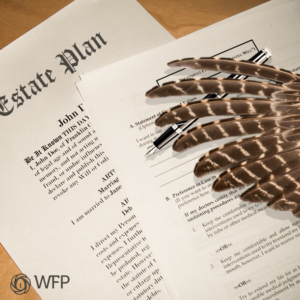Let’s face it – life requires insurance. Cars crash, homes get flooded and people pass away. As morbid as this topic may seem it’s purely realistic and the best way to deal with it is to be prepared. Most Americans fail to realize the importance of life insurance. Once a loved one passes, they are likely to leave behind a variation of expenses such as a funeral bill, business expenses, or an unpaid mortgage. These expenses can cause the surviving family to deal with an unnecessary financial burden and experience a great deal of stress. Have no fear, life insurance is a great way to alleviate this stress! Once your policy is coupled with the right estate planning technique you can walk away with peace of mind knowing that the family will be fully protected.
An Irrevocable Life Insurance Trust (ILIT) is an estate planning tool that is commonly used. The ILIT will allow your family to continue to benefit from the life insurance policy without the hassle of a possible tax issue. Great news, right?! Here is how it works: The ILIT transfers the benefit into the trust while you relinquish all control over the policy. This relinquishment of control is required by the IRS to avoid possible estate taxes. Doing this removes the life insurance policy from your estate and decreases any potential taxation the family may have faced. Now, all that remains is an increase in overall asset protection for the family!
Considering creating an ILIT? Be sure to first consider who you will designate as Trustee, the individual who will distribute the assets, as well as who you wish to designate as a beneficiary (can be a spouse, child or any other individual you deem appropriate). The terms of the trust are up to you – you can choose how you wish the assets to be distributed but be certain you are happy with how it’s created because once in place the terms of the ILIT cannot be changed.
This estate planning technique offers tax free protection for the family. Alleviate the potential financial burden your family could face by calling an experienced estate planning attorney today!
For more information on successful Florida estate planning and asset protection techniques, please contact the South Florida law firm of Wild Felice & Partners at 954-944-2855 to schedule your free consultation.
It’s a Wild World. Are You Protected?





